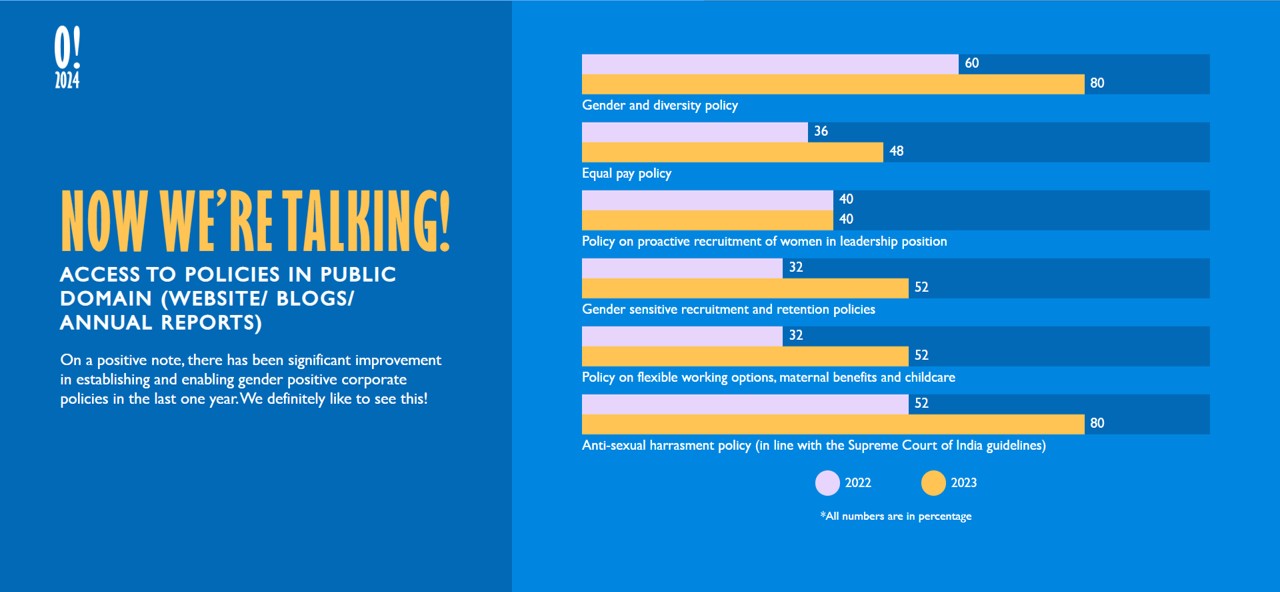Prime Video Releases the New Edition of O Womaniya! Report Identifying Current Gaps in Female Representation in Indian Entertainment
Spearheaded by Ormax Media and Film Companion Studios, in its fourth edition, the O Womaniya! 2024 report evaluated 169 Indian films and series across 9 Indian languages released in 2023 on streaming services and in theatres, showing a widening gap in female representation between theatrical and streaming content with streaming continuing to lead the charge
The report also unveils a unique Gender Equality Toolkit to help filmmakers analyze if their own content passes crucial parameters on female representation, at the inception stage itself
Access the complete report here
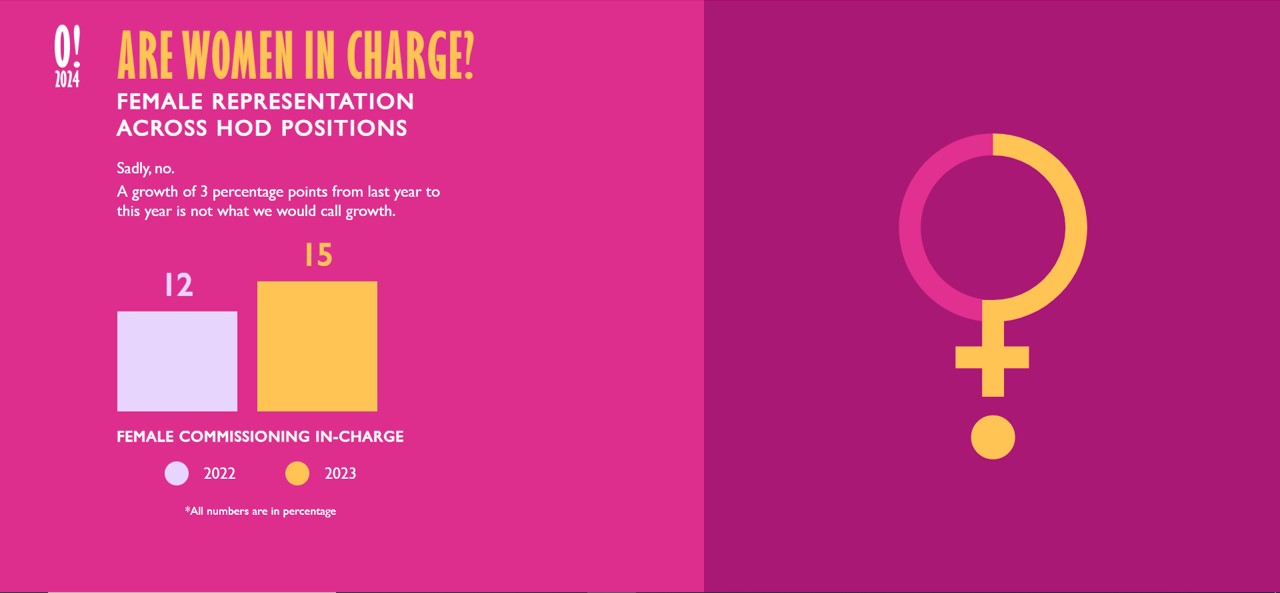
Prime Video released the latest edition of O Womaniya! report, the most definitive study on female representation in Indian entertainment. Researched and curated by media consulting firm, Ormax Media, produced by Film Companion Studios, and championed by Prime Video, the O Womaniya! 2024 study delves deeper into current and emerging trends, while identifying gaps in female representation across key areas of production, corporate leadership, and marketing in Indian entertainment. This year, the report analyzed 169 films and series released in 2023 in nine Indian languages (Hindi, Tamil, Telugu, Malayalam, Kannada, Marathi, Punjabi, Bengali, and Gujarati), across streaming and theatrical.
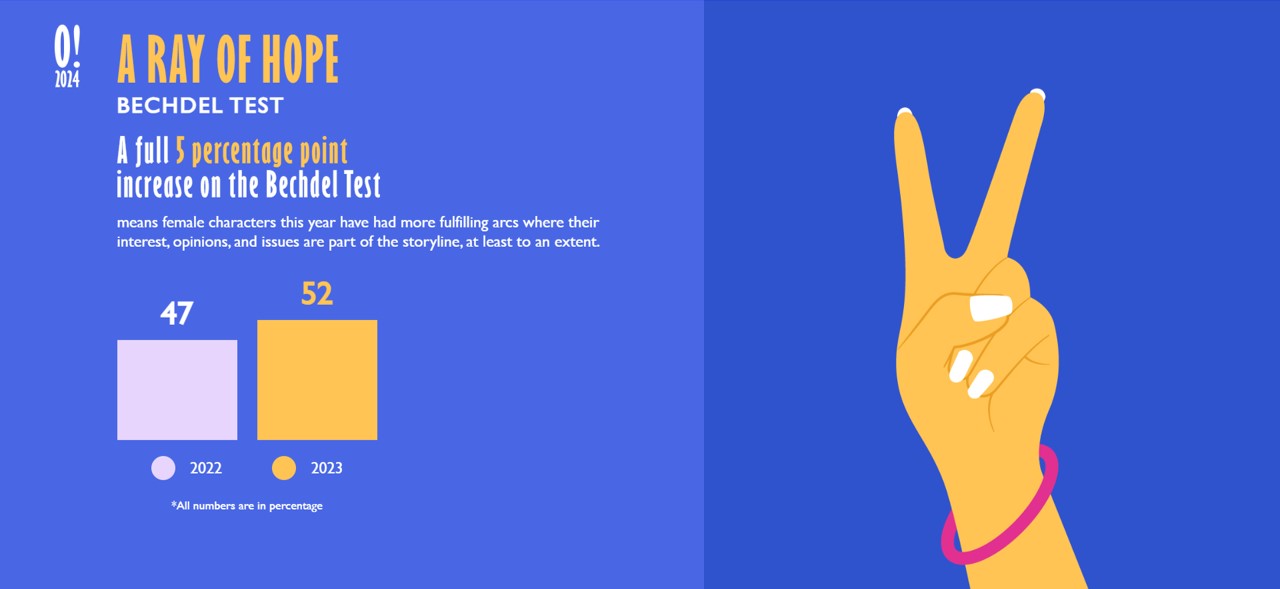
Key findings of the report include:
-
●Content – The O Womaniya! Report institutionalized a new test, Gender Equality Toolkit1, this year to measure female representation in content, and also enable filmmakers to apply the test and eliminate biases early on in the content creation cycle. The test checks whether women in a film or series have agency, and are drivers of their own stories or are just accessories to driving the male point of view in storytelling. Only 31% of the titles analyzed passed the Gender Equality Toolkit test, with streaming series taking the lead with 45% of them passing the test. The report also revealed that more stories pass the test when there is a female commissioning-in-charge, as 48% of the titles that passed the test were commissioned by women. The report also deployed the more traditional Bechdel Test2 to analyze content to reveal almost half the titles falling short on this test as well.
-
●Creative Talent – Only 15% of the HOD positions analyzed across key departments of direction, cinematography, editing, writing, and production design, were held by women. Streaming had a significant contribution to this, with both streaming films and series having over 20% of HOD positions helmed by women. Editing took the lead amongst departments with over 18% of films and movies, mostly on streaming, having female editors.
-
●Marketing – Women still have only 29% talk time3 in trailers. Though it has increased in the past two years, growth remains marginal, with streaming films showcasing the highest propensity to allocate more talk time to women in promotional trailers. Of the titles analyzed, Made in Heaven Season 2 (Hindi), Boo (Telugu), Jhimma 2 (Marathi), Taali (Hindi), Rainbow Rishta (Hindi), Wedding.con (Hindi), Sweet Kaaram Coffee (Tamil), Saas Bahu Aur Flamingo (Hindi), and Jaane Jaan (Hindi) were some of the films and series to feature high in the list.
-
●Corporate Talent – Among the 144 Director/CXO positions analysed across 25 leading M&E firms in India, only 12% were held by women, a slight decline over the last year.
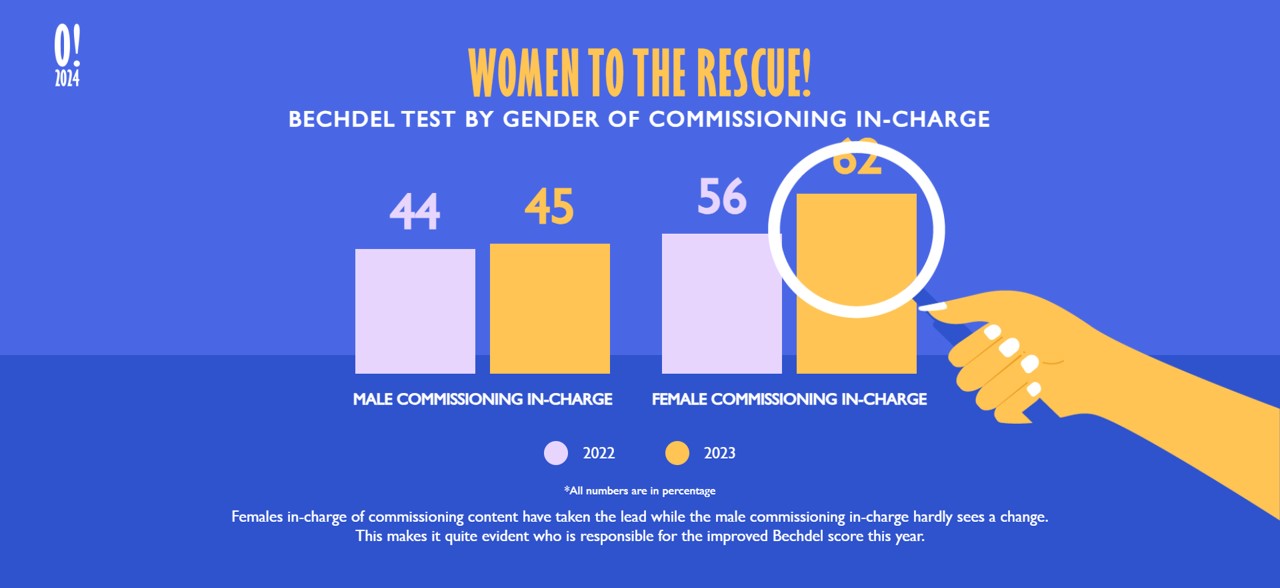
“At Prime Video, we firmly believe that Diversity, Equity, and Inclusion (DEI) is not just good to have — it is essential to driving meaningful change. We have worked intentionally and persistently to build a diverse, inclusive, and equitable ecosystem, creating more opportunities for women, both in production and within our organization. In a collaborative industry such as ours, the true impact of DEI can only be realized when it is embraced across the board, with each of us committing to fostering an environment where women are seen, heard, and truly valued,” said Stuti Ramachandra, Director & Head of Production, International Originals, Prime Video, India. “O Womaniya! exemplifies the power of collaboration in addressing female representation in the industry. This latest edition of the report calls on all of us to accelerate these transformative efforts—not merely taking small steps, but making bold strides toward a world where opportunities and growth are defined by capability and talent, not gender.”
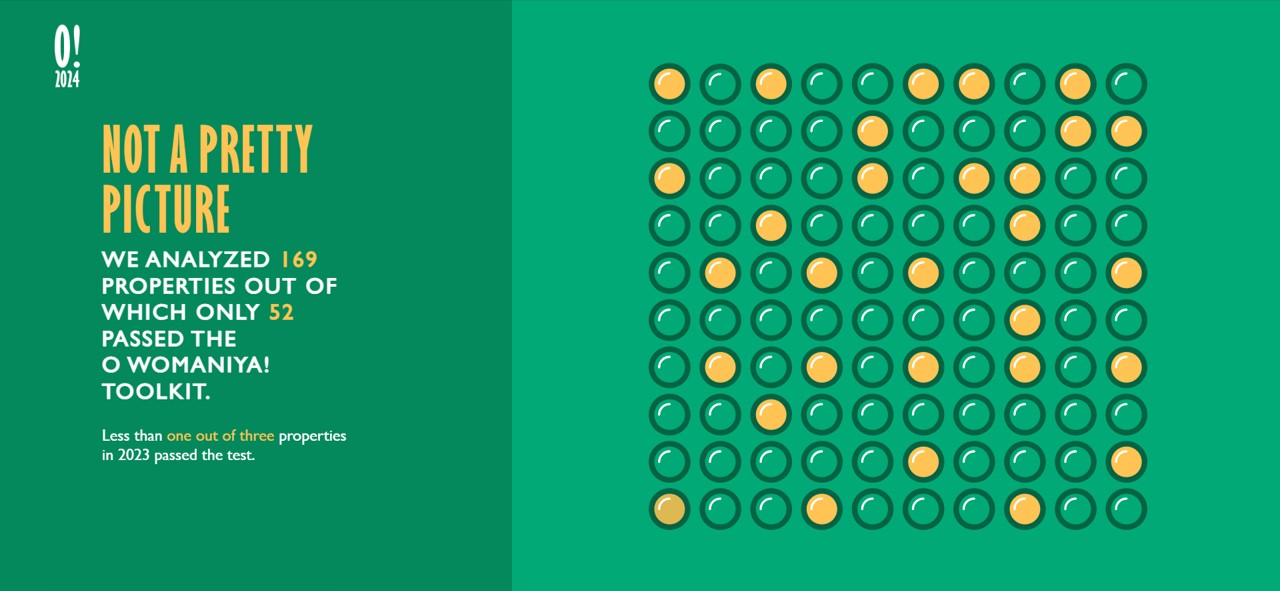
Sharing his thoughts on the latest findings in O Womaniya! Shailesh Kapoor, Founder & CEO, Ormax Media, said, “With every edition of O Womaniya!, we have looked at expanding the scope of the report. In this year's edition, the introduction of the Gender Equality Toolkit offers a nuanced perspective on representation of women in entertainment. The toolkit is designed to be action-oriented, and can help creators and producers evaluate new ideas at their end, from an inclusivity perspective.”
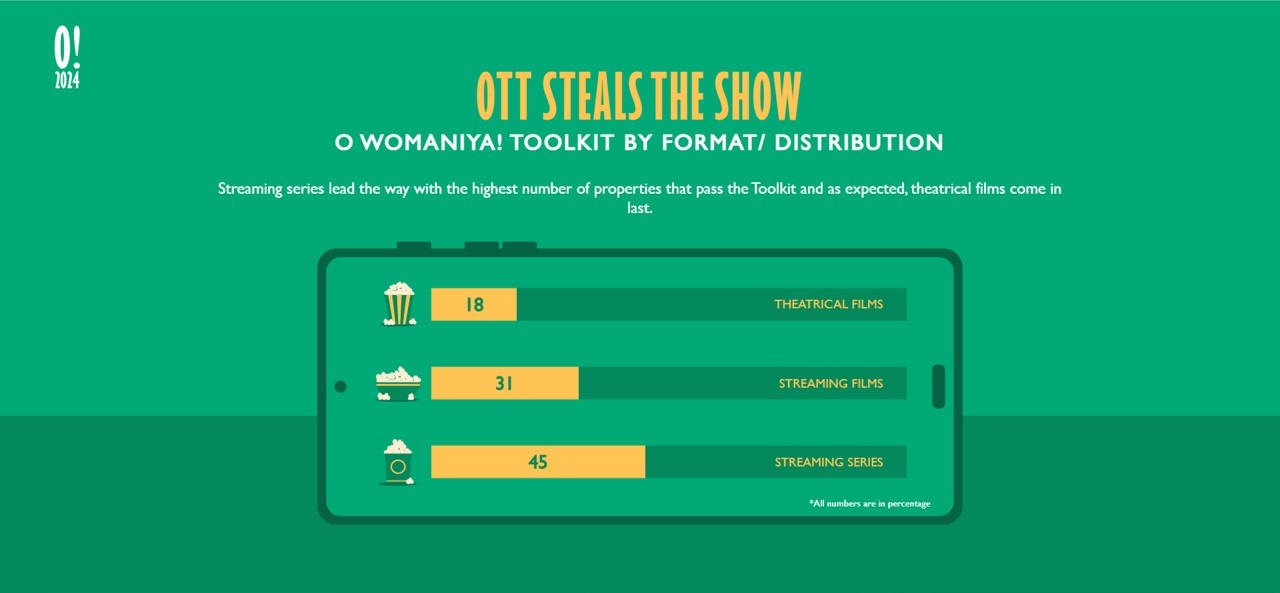
Speaking about the report, Anupama Chopra, Film Critic and Producer said, “The entertainment industry is under greater scrutiny than ever before. With every step forward and every gap left uncovered, stakeholders are reflecting on how they can drive meaningful change. Every action and conversation around gender inclusivity matters and with the O Womaniya! Report and the newly launched Toolkit, we are moving closer to creating an equitable industry. I am deeply grateful to Prime Video and Ormax Media for their partnership in this groundbreaking initiative.”
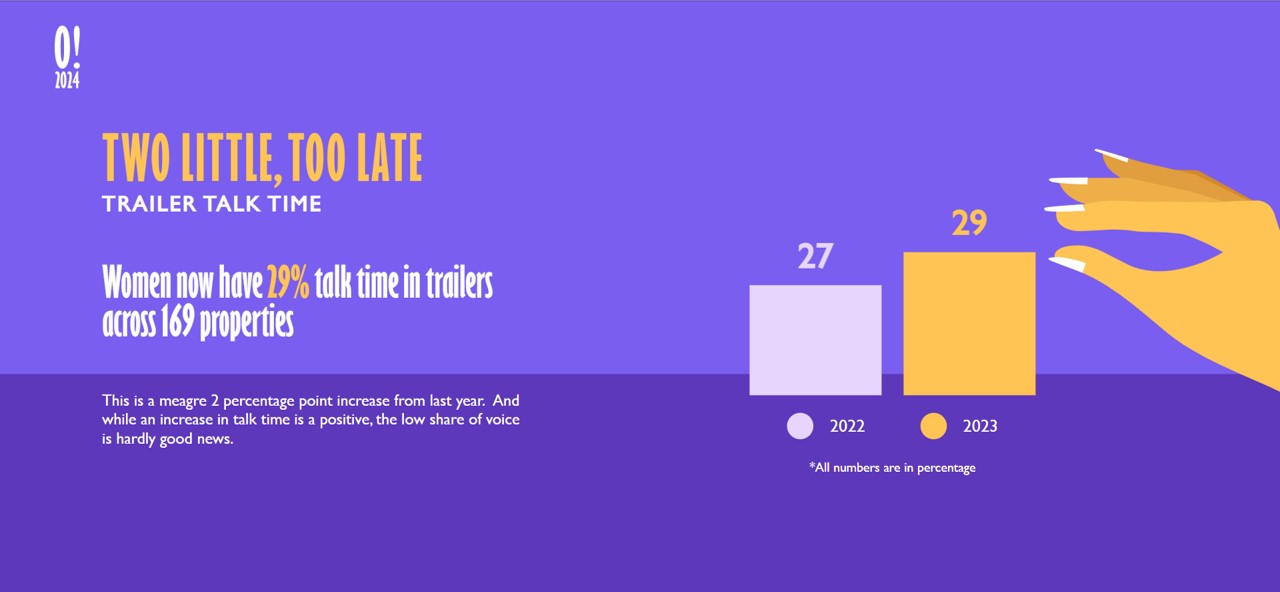
1. The Gender Equality Toolkit is a test created exclusively for OWomaniya! In this test, a film or series is analyzed to check female representation on-screen. A title passes the test if it is positive on all four of the following questions: (1) Is there at least one named female character with at least one line of dialogue, who plays a role that does not have any romantic or familial connection to the male protagonist? (2) Does at least one female character play an active role in taking economic, domestic and/or community decisions that are pivotal to the show’s/film’s story? (3) Is there any point in the story where a female protagonist expresses a conflicting viewpoint to that of a male character, on an issue central to the plot? (4) Does the show/film portray sexualization of women, and/or violence against women, as normal/acceptable? The positive answer to the first three questions is “YES”, while that to the fourth question is “NO”. The test can also be used by filmmakers early in the content creation cycle to check how their film or series fares on female representation on screen.
2. The Bechdel Test, conceptualized by Alison Bechdel in 1985, is seen as an internationally-accepted yardstick on gender representation in content. A film is considered to have passed the Bechdel Test if it has at least one scene in which two named women are speaking, and the conversation is about something other than men/ a man. For streaming series, the criterion was modified to include three scenes, given their longer runtime.
3. Trailer Talk Time is a test created exclusively for OWomaniya! In this test, the main trailer of the film or series is analyzed and classified by the speaking time allotted to the male and female characters. The test reports % speaking time that was owned by female characters. The test gives an insight into how producers and platforms are marketing content. At 71% trailer talk time being controlled by the male characters, the results suggest that properties are being pitched from a male POV in their marketing.
